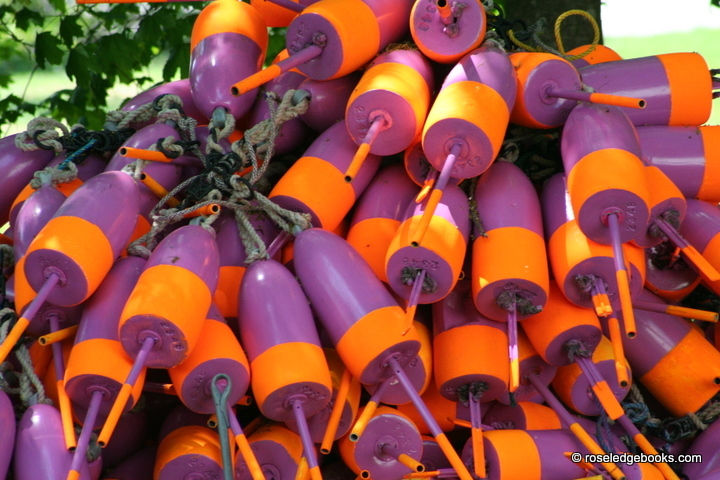Hurricane Irene blew down (or sogged up, if rain was the beast) trees, and some of the trees fell on wires that cut electricity to homes. A Maine friend had one such tree. Her neighbor said, “Your tree fell and now I cannot make my dress for my sister’s wedding next weekend.” Friend answered, “I’ve been telling you for two months to get going on the dress.” Pure Maine.
Minnesota friends were visiting Roseledge last week. They found and ate my stash of Willow Street Bakery molasses doughnuts which I had buried in a brown bag inside a plastic bag in my freezer. When I went to replace them, Willow Street Bakery was closed — I don’t know why — until six days after I return to Minnesota. I called my friend and said, “You ate all of the molasses doughnuts and now Willow Street Bakery is closed.” Without pause, she said, “We knew you’d be pleased at how much we enjoyed them.” Pure Minnesota.
So what makes something or someone “of Maine?”
The question arose when RB decided to have and continue to replace Elizabeth Strout’s Olive Kittredge. I say “not of Maine” because Olive Kittredge is more a type than a Mainer. Certainly she, or her like, lives in Maine, but she lives in the North Dakota of my youth, too. And the lack of very specific place names, e.g. Harbor Woods, Barter Flats, Donut Point, Drift-in Beach, suggests the author has not been long enough in Maine. But I was the minority of one, so the question remains fun and will arise again next summer when J. Courtney Sullivan’s Maine is out in paperback. So far the reviewed emphasis is on the four women and the hard cover has too much sand and too little clothing, brr-r-r.
So, if not these two books, then which ones ARE about people who, one way or another, become “of Maine?” Consider the following:
Siddon, Anne Rivers. Colony, a novel by a woman who married into a family who has long summered in Maine and who also writes of coastal mores in North Carolina, which might make her Maine observations especially perceptive.
McCullough, David. 1776, a Revolutionary War history which includes early days of Thomaston’s Henry Knox.
Sterba, Jim. Frankie’s Place, a contemporary love story/memoir of Mt. Desert rusticator and Michigan transplant.
Coatsworth, Elizabeth. Personal Geography, “almost an autobiography” of author who, with Henry Beston, lived life fully on Maine farm.
Heinrich, Bernd. Snoring Bird, “my family’s journey through 100 years of biology” told through the lives of mostly German father and mostly Mainer son and author.
Zimmerman, Elizabeth. Knit One, Knit All, a knitting book, yes, but does the last page make it “of Maine?”
Okay, Roseledge Book Regulars, what do you think? What would you add? See you next year when the porch view of the harbor, a glass of chicken wine, and regetting together happen. Until then, Minnesota looms, you bet. Next post from the Group Home, as my new digs have now become.


Bon voyage! Hope that next August will see my 2nd trip to Penobscot region (1st was 1968). If it happens, RB will be on the itinerary. Happy winter. Switch from wool to down.